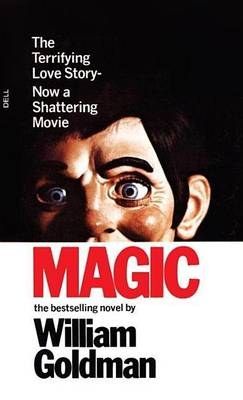
brokentune
Written on Mar 25, 2018
Corky continued to breathe heavily.
“You can talk now, say whatever you want, as long as I want you to, when I’m bored, we’ll play some more.”
“Lis—”
“—I’m bored, let’s play, get the knives.”
“Knives?”
“The Duker’s, go get ’em.”
Corky went to the kitchenette, brought out the knives.
“What do you think we ought to do with ’em?” Fats said.
“Want me to whittle something?”
“Maybe.”
I vividly remember watching the 1978 film based on this book starring Anthony Hopkins for the first time in the 1990s, and the second time about ten years later, and it is incredible that it has taken me this long to read the actual book.
There is something odd about the book. It is as creepy and gripping as the film, but I can't say that I enjoyed the writing. The writing seemed somewhat choppy. However, this is a pulp fiction novel and it does fit in with my expectations of what a mid-1970s pulp thriller / horror novel would read like. It would be interesting to read Goldman's Marathon Man at some point just to find out if his style varies in a different story of a similar genre.
Still, despite the disjointed narration, it was a pleasant surprise to find that Peggy, the "love interest", was an interesting character that had more to her than physical attraction. I liked how she got a voice in the book, even tho she was not the focus of the story.
“Get this please: I’m leaving, and you’re leaving, so it happens we’ll go together but I’m not running out on Duke because he’s at the bottom, I’m going because I’m at the bottom, so it happens by coincidence that you and I are heading the same direction, out, and if it works that we stay headed that same direction, terrific, but if it doesn’t, the world’s not ending for me, which is what I was afraid of, going off and leaving one guy and then getting dumped by another and not having the first one around to take me back but that’s no problem, not anymore, ’cause if I get dumped, I’m not coming back.”
I am not even sure why I was so surprised to find that her character had a mind of her own. Maybe it was my bias with respect to books written in the 70s, maybe something else, but I enjoyed the little sub-plot that Peggy's thoughts created.
“… huh …?”
“… it was you all the time …”
“… you sure …?”
“… trust me for a while …”
